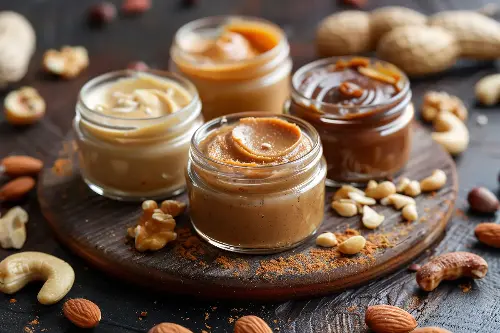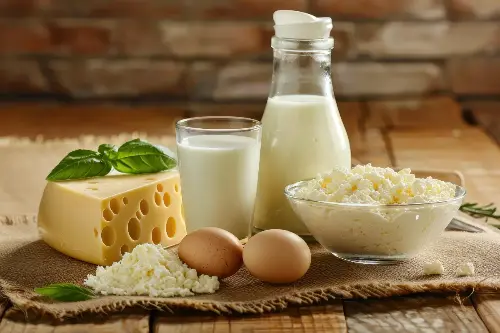If you’re concerned that your child might be a bit underweight or isn't gaining weight at a healthy rate, adding high-calorie foods to their diet might be a sensible strategy to consider. While the idea of high-calorie foods might evoke thoughts of unhealthy snacks and empty calories, there is a wealth of nutritious yet energy-dense foods that can help your child gain weight, while also offering the vitamins, minerals, and other nutrients crucial for healthy development. Here’s a look at five top high-calorie foods that can help your underweight child thrive, without sacrificing overall nutrition.
Wholesome Nut Butters

Nut butters, such as peanut, almond, and cashew butter, are terrific sources of healthy fats, proteins, and calories, making them an ideal choice for underweight children. A single tablespoon of peanut butter, for instance, can provide around 94 calories along with a good boost of protein. Nut butters are incredibly versatile and can be spread on whole-grain breads, blended into smoothies, or used in various recipes like oatmeal bars and pancakes. They’re not only rich in calories but also contain vitamins and minerals essential for a child's growth, including magnesium, zinc, and vitamin E. However, be mindful if there are any allergy concerns, as nut allergies are prevalent in children.
Avocado – Nature’s Butter

Avocado is another excellent source of healthy fats and calories. One medium avocado contains approximately 240 calories and is packed with nutrients that are beneficial for growth and development, including fibre, vitamins E, C, B-6, and omega-3 fatty acids. The creamy texture and mild flavour of avocados make them a hit among children. They can be mashed and spread on toast, whipped into smoothies, or turned into guacamole as a dip for other veggies or whole-grain crisps. Moreover, the monounsaturated fats found in avocados are advantageous for heart health, which is an added benefit.
Full-fat Dairy Products

Including full-fat dairy products in your child’s diet can significantly increase their calorie intake. Products such as whole milk, cheese, cream, and yoghurt are not only calorie-dense but also good sources of calcium, which is vital for bone development. A glass of whole milk adds about 150 calories, along with high-quality proteins and vitamin D. For those not lactose-intolerant, full-fat yoghurt can be an excellent snack, providing gut-friendly probiotics, and can be mixed with fruits and nuts to enhance the flavour and nutritional profile.
Eggs – A Compact Protein Pack

Eggs are often referred to as the gold standard for protein quality, containing about 70 calories each and all the essential amino acids your child needs. Beyond just being a protein powerhouse, eggs are rich in vitamin D, choline, and selenium. They are incredibly versatile and can be prepared in various ways, from simple boiled or scrambled to more elaborate omelettes and quiches, all of which are child-friendly dishes. Moreover, if you’re exploring ways to add calories, incorporating cheese and full-fat milk into egg dishes can make them even more energy-dense.
Dried Fruit and Nuts

This snacking combination not only offers a tangy-sweet flavour but also provides a hefty dose of calories, fibre, micronutrients, and antioxidants. Raisins, dried cranberries, apricots, and dates are good choices and provide concentrated sources of energy and nutrients. Mixed with nuts, they deliver a satisfying crunch along with additional protein and healthy fats. Small packs of these can be handy snacks during breaks at school or playtime, or even as a tasty topping for breakfast cereals.
Striking the Right Balance
While the focus is on increasing calorie intake, it’s crucial to balance these calorie-rich foods with regular physical activity and typical growth assessments. Consultation with a paediatric nutritionist or healthcare provider can also help in creating a balanced diet plan tailored for your child's specific needs and conditions.
Promoting Healthy Eating Habits
Alongside providing these high-calorie options, fostering a positive eating environment is essential. Encourage your child to listen to their hunger cues, eat slowly, and enjoy a variety of foods. This not only helps in gaining weight but also in developing a lifelong healthy relationship with food.
Incorporating these nutrient-packed, high-calorie foods into your child’s diet can be a practical step towards improving their health and growth without relying on empty calories from processed food. With the right choices, you can ensure your child thrives both physically and developmentally, paving the way for a robust, healthy life.
